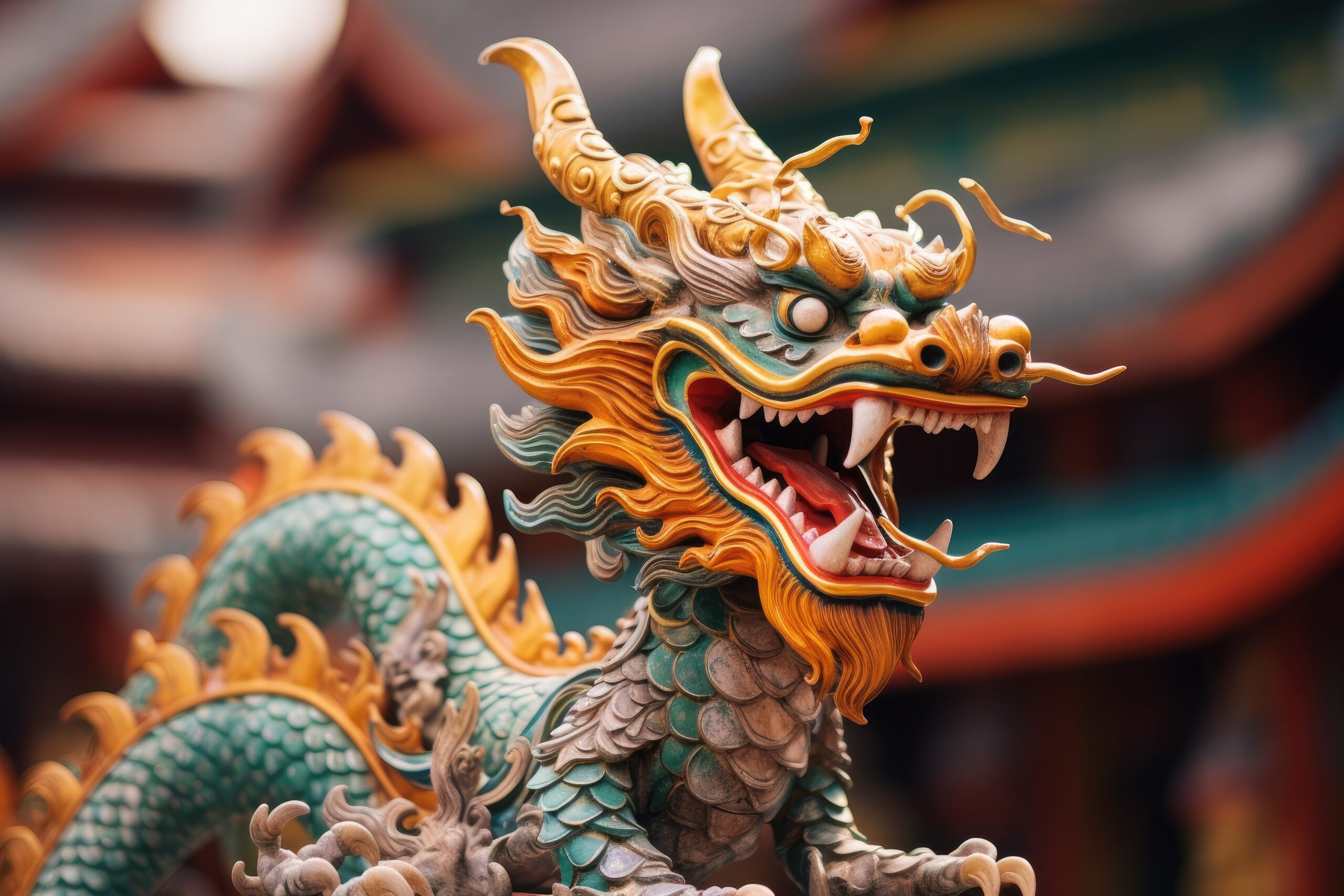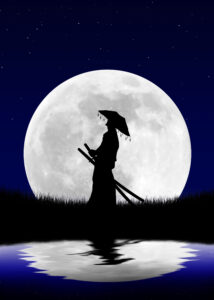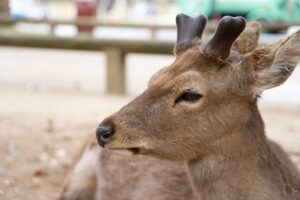In the tapestry of Japanese culture, dragons weave an intricate pattern, embodying both the fearsome and the divine. These mythical creatures, deeply rooted in the nation’s lore, have shaped traditions, inspired art, and continue to captivate the imagination of people around the world. Unveiling the mystique of Japan’s dragons offers a window into the soul of a culture where the line between the natural and the supernatural blurs, creating a rich narrative of magic, morality, and mystery.
Unveiling the Mystique: Japan’s Dragons
Dragons in Japan, unlike their Western counterparts often depicted as malevolent creatures, are seen as benevolent beings possessing immense wisdom and supernatural powers. These majestic creatures symbolize strength, luck, and prosperity, deeply influencing Japanese culture and society. The Japanese dragon, or "Ryū," is traditionally portrayed as a long, serpentine creature with clawed feet, often seen soaring amongst clouds or entwined around the peaks of mountains. This image pervades various aspects of Japanese art, literature, and religious practices, illustrating the deep-seated reverence for these mythical beings.
The Origins of Dragon Mythology in Japan
The genesis of dragon mythology in Japan is a blend of indigenous beliefs and external influences, primarily from China. The introduction of Buddhism in the 6th century further intertwined Chinese dragon lore with Japanese culture, giving rise to unique interpretations and stories. These dragons were often associated with water—rivers, lakes, and seas—believed to control rainfalls and water bodies, crucial for agriculture. Ancient texts and chronicles, such as the Kojiki and Nihon Shoki, feature dragons in various roles, from gods of the sea to destructive forces to be appeased.
Deciphering Dragon Symbols in Japanese Culture
In Japanese culture, dragons are symbols of immense power, wisdom, and prosperity. They are revered as protectors, warding off evil spirits and bringing good fortune. The dragon’s symbolic association with water ties it to agriculture, symbolizing fertility and abundance. Additionally, dragons represent perseverance and strength, as depicted in tales where individuals overcome great obstacles through determination, often aided by these celestial beings. These symbols permeate Japanese festivals, architecture, and family crests (kamon), showcasing the dragon’s integral role in society.
Legendary Dragons of Japan: An Overview
Among the pantheon of Japanese dragons, several stand out for their memorable tales and significant cultural impact. The Yamata-no-Orochi, an eight-headed and eight-tailed dragon, is one of the most famous, defeated by the storm god Susanoo. Another notable dragon is Ryūjin, the dragon god of the sea, who controls the tides with magical jewels and is revered as a protector of fishermen and sailors. These legends, passed down through generations, highlight the dragons’ dual nature—both destructive and benevolent, feared and revered.
The Spiritual Significance of Dragons in Shinto
In Shinto, Japan’s indigenous spirituality, dragons are revered as kami, or spirits, embodying the sacred and the divine. They are seen as guardians of nature, symbolizing the power and mystery of the natural world. Shinto shrines dedicated to dragon deities dot the Japanese landscape, where devotees offer prayers for protection, good fortune, and rain for crops. Festivals and rituals often invoke dragons, seeking their blessings and expressing gratitude for their benevolence.
Dragons in Japanese Folklore: Tales and Traditions
Japanese folklore brims with stories of dragons, from tales of transformation to those highlighting the deep bond between dragons and humans. These stories often convey moral lessons, such as the importance of compassion, respect for nature, and the virtues of courage and wisdom. Festivals like the Dragon Boat Festival celebrate these mythical creatures through races, dances, and music, fostering a sense of community and continuity of tradition.
The Protector Dragons: Heroes of Japanese Myths
In many Japanese myths, dragons emerge as protectors and heroes. They are often depicted coming to the aid of humans, granting wishes, or offering sage advice. Their heroic deeds are celebrated in stories that underscore the dragons’ role in maintaining balance between the earthly and celestial realms, protecting the land and its people from natural disasters and malevolent spirits.
The Artistic Deplication of Dragons in Japanese Art
Dragons occupy a prominent place in Japanese art, elegantly rendered in ink paintings, woodblock prints, and sculptures. Artists such as Katsushika Hokusai and Utagawa Kuniyoshi have immortalized these creatures in works that capture their dynamic energy and spiritual presence. The fluid, serpentine form of the dragon lends itself to various artistic interpretations, symbolizing the flow of life and the interconnectedness of all things.
Dragons in Modern Japanese Media: From Manga to Movies
In contemporary Japan, dragons continue to inspire creators, featuring prominently in manga, anime, and films. Series like "Dragon Ball" and films such as "Spirited Away" have introduced new generations to these mythical beings, blending traditional lore with modern storytelling. These depictions often explore themes of friendship, perseverance, and the struggle between good and evil, resonating with audiences worldwide.
Festivals and Rituals: Celebrating Dragons in Japan
Throughout Japan, festivals and rituals celebrate the dragon’s cultural significance. The Saitama Ryujin Matsuri and the Hakone Daimyo Gyoretsu parade are just two examples where dragons take center stage, celebrated through elaborate floats, traditional music, and dance performances. These events not only honor the dragons’ spiritual legacy but also serve to strengthen community bonds and pass traditions to future generations.
The Evolution of Dragon Lore in Contemporary Japan
As Japan strides into the future, the lore of dragons continues to evolve, reflecting changes in society and culture. While traditional tales remain beloved, new interpretations emerge in literature, art, and digital media, exploring complex themes such as environmentalism and technological advancement. This ongoing reinvention ensures that the mystique of dragons remains a vibrant and integral part of Japanese culture.
Preserving the Dragon Heritage: Challenges and Efforts
Preserving the rich heritage of dragon lore faces challenges, from the fading of traditional storytelling to the rapid pace of modernization. Efforts by cultural institutions, educators, and communities aim to keep these traditions alive, documenting tales, revitalizing festivals, and incorporating dragon lore into educational programs. Through these endeavors, the legacy of Japan’s dragons continues to enchant and inspire, bridging the past with the present and the future.
In the heart of Japanese culture lies a profound respect and reverence for dragons, creatures that encapsulate the essence of both the natural and supernatural worlds. From ancient myths to modern media, dragons remain enduring symbols of power, protection, and wisdom. As guardians of tradition and harbingers of prosperity, they continue to wield their mythical influence over Japan’s cultural landscape, reminding us of the enduring power of folklore in shaping our understanding of the world. Unveiling the mystique of Japan’s dragons reveals not just the soul of a nation, but the universal allure of stories that have captivated the human spirit for centuries.








